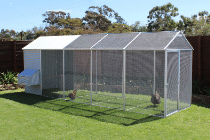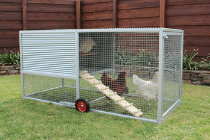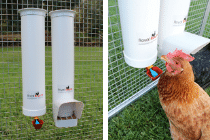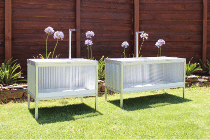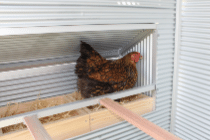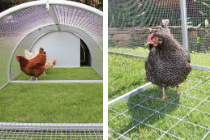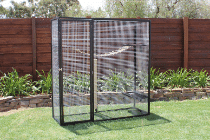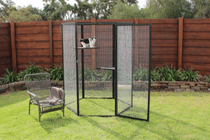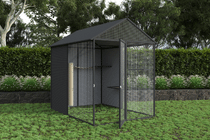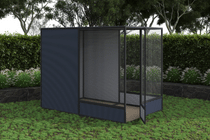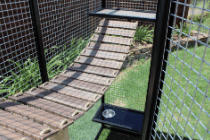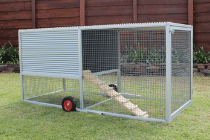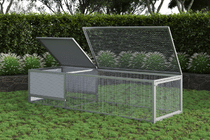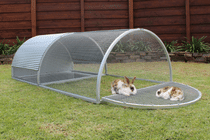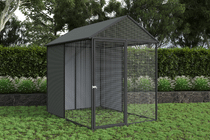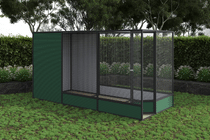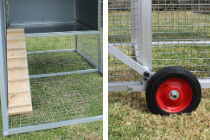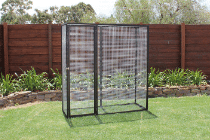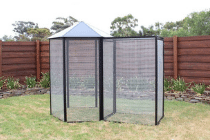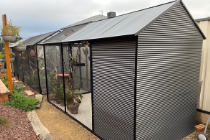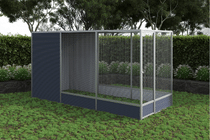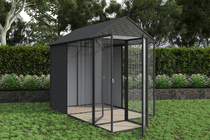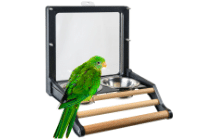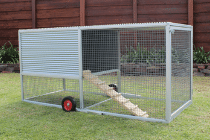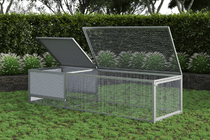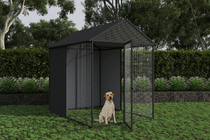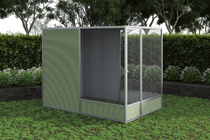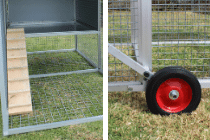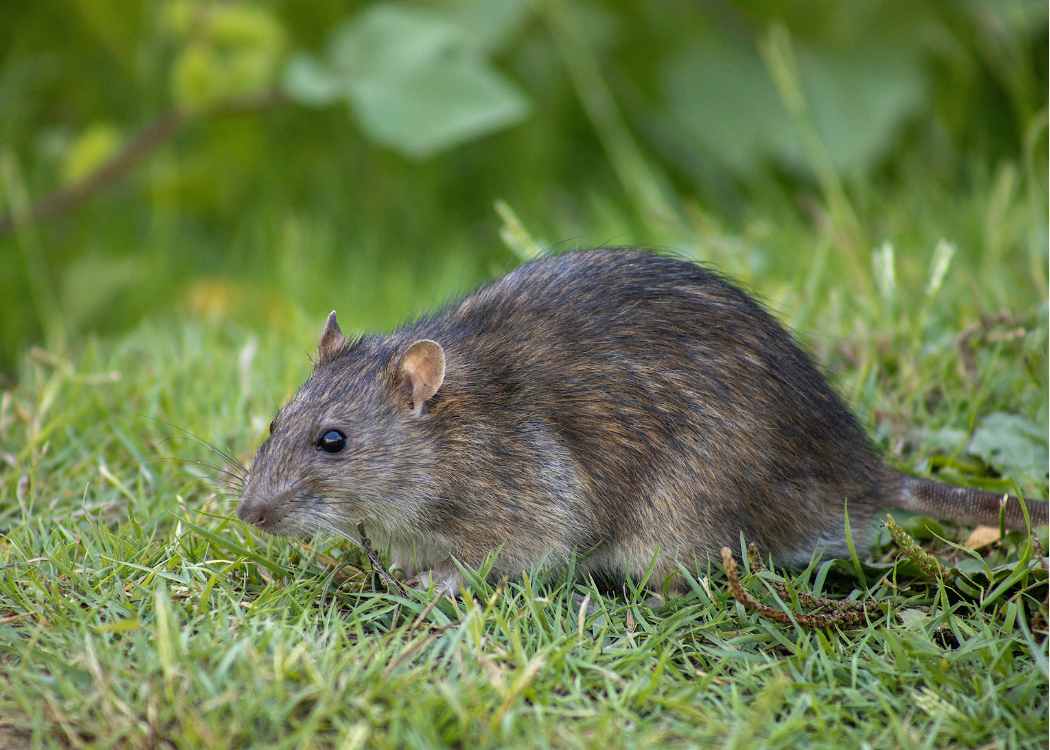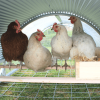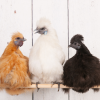Do Chicken Coops Attract Mice & Rats
I love backyard chickens but I’m definitely not a fan of mice and rats. Just because you have chickens in your backyard, doesn’t mean you also have to have mice or rats in your chicken coop. Obviously it’s not the chickens themselves that attract mice or rats, it’s the spilt or poorly stored grain or pellets that can attract these unwanted visitors.
Rodents are looking for food, water and shelter. If your chicken coop provides a secluded corner that your chickens can’t access, food and water, these little creatures might just decide to stay. Interestingly, chickens are actually omnivores which means that they eat both vegetable and meat materials. Chickens happily eat insects, worms, carcasses as well as seeds, grains, weeds and other plant material. This means that a mouse that is a bit slow running through the coop, might find that he becomes a light snack for one of your chickens. I wouldn’t however, rely on your chickens to keep your mouse problem under control.
Owners of backyard chickens should always take preventative measures to keep away these undesirable visitors that can bring with them a range of diseases.
Keeping mice out of the chicken coop
While the first, logical thing to do would be to prevent mice actually entering your chicken coop, this is much easier said than done! Mice can fit through very small spaces, so small that we may overlook potential access points because we assume that they’re too small.
If you have a fixed chicken coop made with iron walls, a concrete floor and fine mesh, you may be able to keep them out. But if you’ve got a mobile chicken coop or you regularly free range your chickens, there’s likely to be a tiny gap somewhere for these determined creatures to find their way in. So physically keeping mice actually out of your chicken coop may not be really possible, but there’s still other ways to keep them under control.
Mice love spilt feed

One of the key factors in keeping away rodents is to make sure that you have an adequate feeder that doesn’t allow the chickens to spill a great deal of feed onto the ground. As owners and manufacturers of ‘Royal Rooster’ mobile chicken coops, we regularly had customers asking for suggestions about how to prevent their chickens from scratching lots of grain onto the ground. Your chickens can cost you a great deal more than necessary in the way of chicken feed. Most chickens naturally love to scratch at their feed which means a lot of it ends up on the ground and then wasted.
To be honest, we were also having issues with our chickens wasting lots of feed. We were determined to overcome this problem and so decided to design our own feeders. A key part of the design of our feeders is the special dividers in the middle of the feeding tray. These dividers make it much more difficult fro chickens to ‘swipe’ the feed onto the ground.
Chickens will naturally try to sort their grain mix to find the tastiest piece of grain or seed. We’ve found that these feeders significantly reduce the wastage of grain. The chickens are forced to peck at the feed to eat it, rather than ‘explore’ the grain mix and make a great mess in the process. We’ve found that having a feeder that prevents feed wastage is a key factor in keeping away the rats and mice. So while they may physically be able to come into your coop, if you can get your spilt grain under control, you’ll also have your mice problem under control.
Can I take away the self-feeder?
If you have a really bad mice problem, you may be tempted to just feed your chickens at one point in the day by scattering their feed on the ground. Unfortunately, chickens do much better if they have a regular, continuous supply of feed that they can access throughout the day. Self-feeders are really the only easy way to ensure they have a continuous supply available. Rather than taking away the self-feeder all together, it is much wiser to invest in a feeder that limits the amount of grain spilt.
How should I store my feed?
You also need to make sure that your grain or pellets are stored appropriately in a sealed container. Rats and mice can be fairly determined if they sniff out some food that they’re interested in. I’ve discovered a lost Tupperware container in our garage, hidden behind a cupboard that was completely chewed through for the mice to gain access. Tough plastic or even wood is no problem for mice or rates. Be sure to purchase a strong container, ideally made of metal such as an old-fashioned garbage bin or 44 gallon drum to store your grain.
Where to find greater feeders that reduce feed wastage… we’ve made our own! Have a look at our very popular Royal Rooster drinker and feeder sets.


